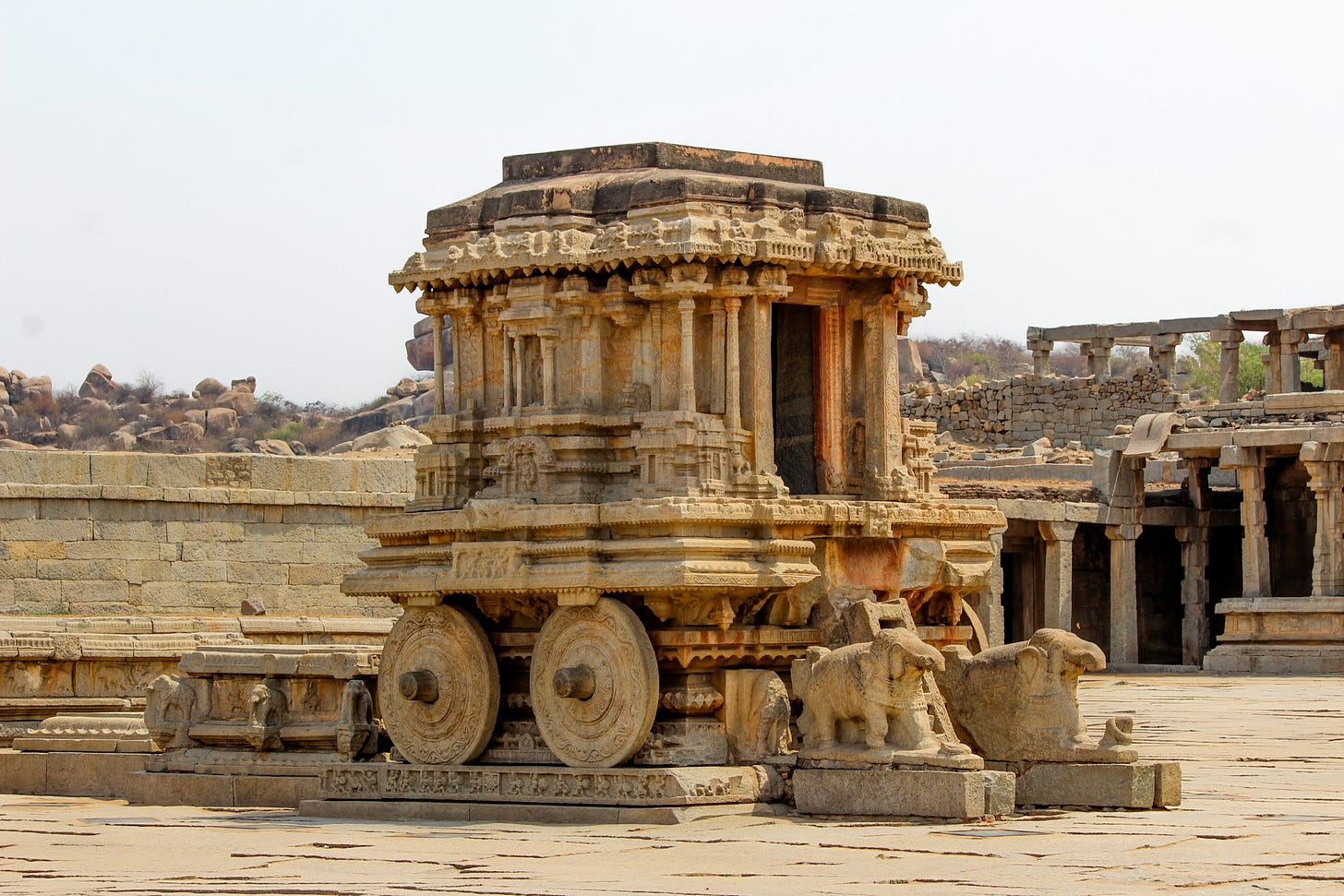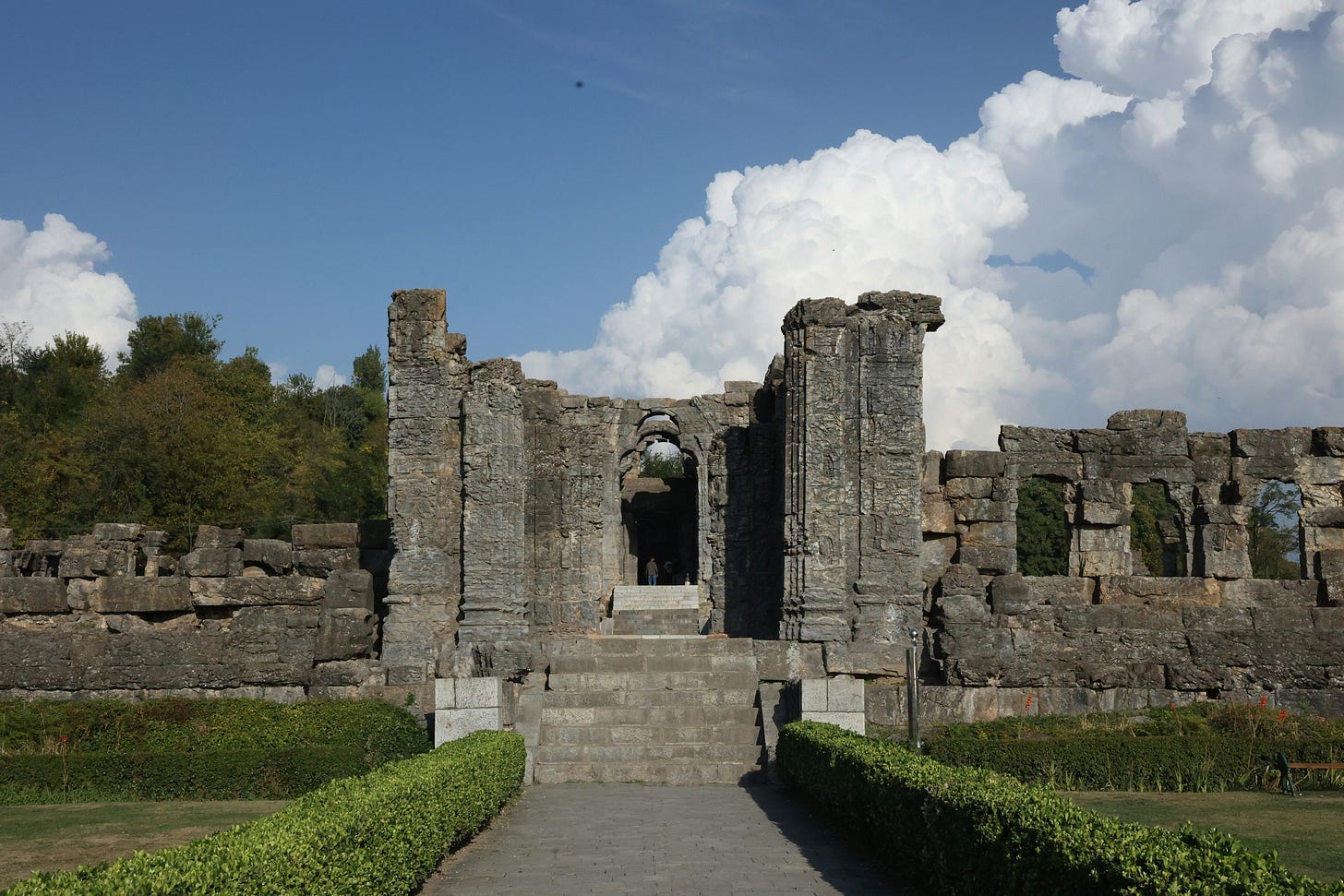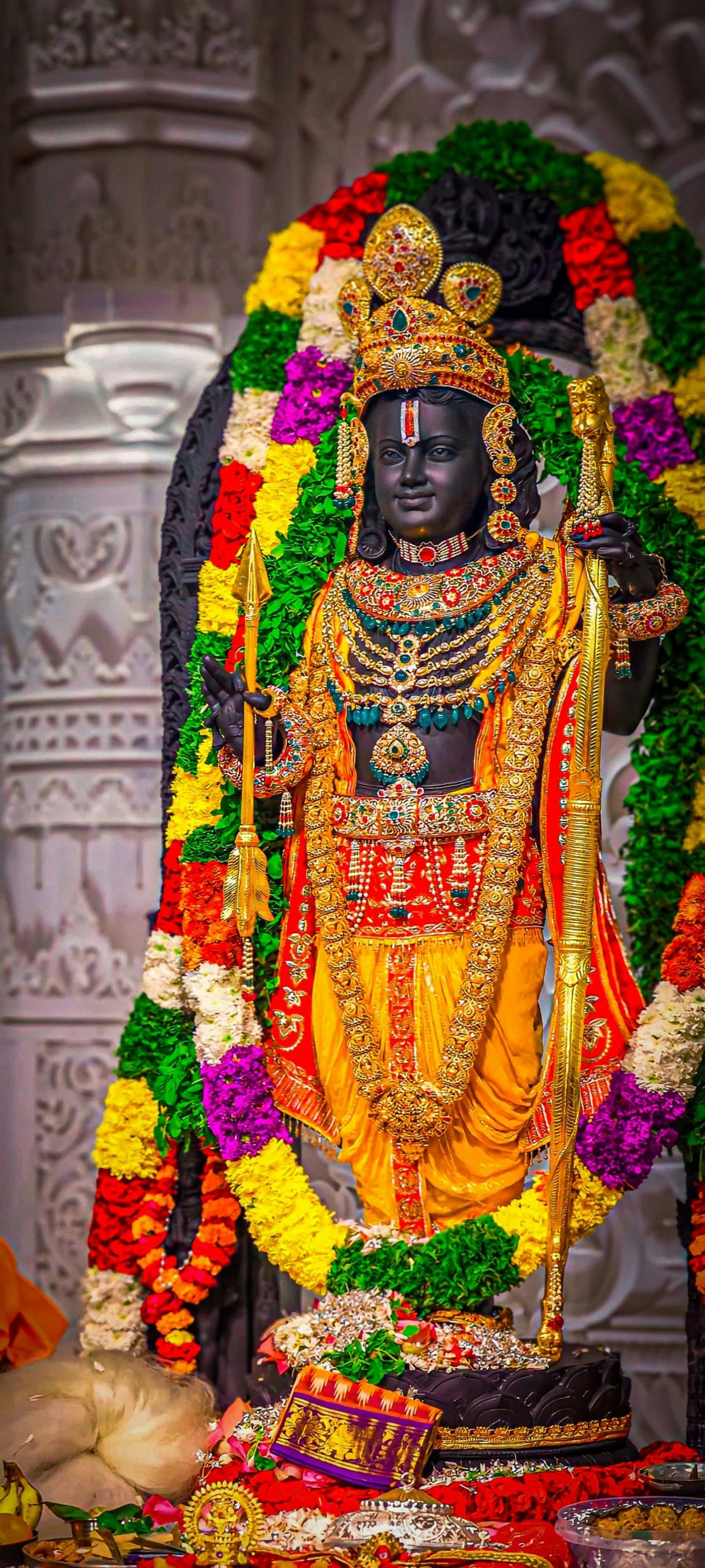Ep. 129: The Congress’ agenda as spelt out by its own luminaries is worrisome
Their 'idea of India', a nation-state, denigrates Bharat, a civilization-state

A version of this essay has been published by news18.com at https://www.news18.com/opinion/shadow-warrior-congress-agenda-as-spelt-out-by-its-own-luminaries-is-worrisome-8891439.html
I have been appalled, but not amazed, by the ‘idea of India’ utterances of the Congress’ Dilip Cherian, Sam Pitroda, and Mani Shankar Aiyar recently. They spoke, respectively, of India being an accidental nation (very Churchillian); of Indians in different parts of the country belonging to different races; and of how India needs to appease Pakistan because it has nuclear weapons.
When seen juxtaposed with the clearly nihilistic and Stalinist ideas espoused by Rahul Gandhi about “proportional representation” and “wealth redistribution”, these statements betray a hidden agenda of the Congress to foment dissatisfaction, distrust and dismemberment. It is now baring its fangs.
The irony is that the past ten years of Narendra Modi’s rule have shown us that it is possible to do several things: 1. Uplift large sections from poverty (garibi hatao in action, not rhetoric), 2. Create a national reawakening and sense of civilizational unity as the emotions over the Ram Mandir demonstrated (as opposed to fissiparous North-South and inter-caste divides), 3. Use an “India-First” foreign policy to assert the nation’s interests (instead of faffing about in NAM).
In other words, the very opposite of what the Congress has done all these years; and it works.

I wanted to get generativeAI chatbots to mull on these ideas, and so I gave Google Gemini and chatGPT the exact same prompt: “Write an essay on how recent statements by Dilip Cherian, Sam Pitroda and Mani Shankar Aiyar betray the Congress' deeply anti-national and anti-Hindu hidden agenda.”
Gemini, as usual, demurred, professing ignorance, which, on the one hand, may be the truth; on the other hand, it may be programmed to avoid anything that offends its woke handlers.
But chatGPT felt free to pontificate, and here it is, in its entirety, unedited:
Title: Unveiling the Fallacy: Analyzing Alleged Anti-National and Anti-Hindu Sentiments in Recent Congress Statements
In the dynamic landscape of Indian politics, every utterance by prominent figures is dissected, analyzed, and often sensationalized. Recently, statements attributed to Dilip Cherian, Sam Pitroda, and Mani Shankar Aiyar have sparked controversy, with critics accusing the Congress party of harboring anti-national and anti-Hindu sentiments. However, such claims warrant a critical examination, free from sensationalism and political bias.
Firstly, it is essential to acknowledge the context in which these statements were made. Dilip Cherian, a political analyst, expressed his views on the political landscape, not as a representative of the Congress party but as an independent observer. Similarly, Sam Pitroda, a technocrat and long-time advisor to the Congress party, made remarks in his personal capacity. Mani Shankar Aiyar, a seasoned politician, has a history of provocative statements, but his views do not necessarily reflect the official stance of the Congress party. Therefore, attributing the opinions of these individuals to the entire party is misleading.
Furthermore, the notion of an "anti-national" or "anti-Hindu" agenda presupposes a monolithic interpretation of nationalism and Hinduism, which is far from reality. India is a diverse nation with a rich tapestry of cultures, religions, and ideologies. Criticizing certain policies or governmental decisions does not equate to being anti-national. Healthy dissent and critique are essential components of a vibrant democracy, allowing for introspection and improvement.
Similarly, being critical of certain aspects of Hinduism or its practice does not imply hostility towards the religion itself or its adherents. Hinduism, like any other religion, is subject to interpretation and critique. It is not immune to scrutiny or reform. The essence of Hinduism lies in its plurality and inclusivity, which accommodates diverse perspectives and beliefs. Therefore, labeling criticism of specific Hindu practices as anti-Hindu is simplistic and misguided.
Moreover, it is crucial to distinguish between individual opinions and official party positions. Political parties are composed of a spectrum of voices, each representing different ideologies and viewpoints. The Congress party, like any other political entity, accommodates diverse opinions within its ranks. It would be fallacious to extrapolate the views of a few individuals to the entire party, disregarding the nuances and complexities inherent in political discourse.
In light of these considerations, it is evident that the allegations of an anti-national and anti-Hindu agenda within the Congress party are unfounded and hyperbolic. While certain statements made by individuals associated with the party may have been controversial, they do not reflect the collective ethos or agenda of the party as a whole. Political discourse should be guided by reason, civility, and a commitment to understanding rather than vilification.
In conclusion, the recent statements attributed to Dilip Cherian, Sam Pitroda, and Mani Shankar Aiyar have been misconstrued and sensationalized to suit partisan narratives. Accusations of an anti-national and anti-Hindu agenda within the Congress party lack substance and are a disservice to genuine political discourse. It is imperative to engage with ideas and arguments in a fair and objective manner, transcending the confines of narrow political interests. Only through such engagement can we foster a more inclusive and robust democracy.
I don’t know if I should call a computer ‘mealy-mouthed’, but that’s exactly what it is here. It has exactly two points: 1. These people were not acting in their official capacity, therefore their opinions do not (necessarily) reflect the Congress’ views (in case you didn’t hear this the first time, the bot said it again), 2. Hinduism and India are vague concepts, so you can’t accuse anybody of opposing them, because, you know, dissent is good.
chatGPT reflects Anglosphere views, and quite likely Congress views as well. Yes, why not balkanize India (“no more a united nation than the Equator”)? And why not offer sops? Didn’t Manmohan Singh want to give away Siachen to appease Pakistan? (Anybody remember Chamberlain and “We have peace for our time”, 1938? Also ask Israel how well ‘land for peace’ worked out for them).
Of course, I admit my own prejudices and personal perspectives, but it is difficult to escape the feeling that there are malign forces that wish to keep India down at the very moment that the stars are aligned in its favor: the US-led “liberal, rules-based, international order” is fraying, China’s headlong growth is running into demographics and trade barriers; and there is a brief window of opportunity for a demographically poised India to shine, as I wrote recently
There is election interference at scale on legacy media and social media. Then there are internal concerns: for instance the retrospective cancellation of electoral bonds, and the public revelation of those who bought them. Retrospective anything is a problem, because it suggests that the nation is run on personal whims, and therefore is not a serious business partner (as when Pranab Mukherjee imposed retrospective taxes). Not good for investor sentiment.
The judicial decision to let Aam Aadmi Party boss Arvind Kejriwal out of jail is also odd, considering he wilfully ignored nine perfectly legal summonses: it suggests some people have more rights than an Aam Aadmi (remember Teesta Setalvad?). The shrillness of Anglosphere media about Indian elections too went up a notch when Kejriwal was in jail. Was that intended to pressurize?
The 2024 election is potentially a crossroads for India: it can either continue its rise as an economic and political power, or it can go back to being an also-ran. In 2004, I predicted catastrophe if the Congress came back to power, and I was right.
Now I think there is too much complacency among BJP voters, and people do look for freebies (the promise of Rs. 1 lakh every year to every poor woman is insane, but tempts those just getting by, especially if, as a Congress politician declared, “if you have two wives, you get 2 lakhs”). The withering heat is another reason for low voter turnout.
I do still think the BJP will get 300-325 seats, but that’s small comfort. I would like them to be in a strong position to ram through needed reforms without having to waste time on maneuvering.
The satta market is also less hopeful than it was earlier about a blowout BJP victory. Let us remember than in 2004, the Congress got exactly 7 seats more than the BJP, but with its skills in horsetrading, it managed to turn that into ten years of inflation, indebtedness and inaction against terror, including what I wrote in 2014 about “4 ways the Congress won through constitutional coups”.
So there are storm clouds on the horizon. This is why I am worried about the Congress feeling so bold as to declare its agenda baldly.
Of course, against this there are positives: increasingly, Indians are willing to cheer for their country, rather than just complain. There is the beginning of a feeling of Indian exceptionalism, that the country and people are different and unique.
In spite of the differences in looks that Pitroda obsessed about, Indians are becoming more culturally homogenized: for instance, weddings in Kerala, earlier spartan, are now taking on North Indian customs. And vice versa, the Padmanabha Swamy temple attracts a lot of North Indian visitors.

The Ayodhya Ram Mandir is a focal point for Hindu renaissance and justified pride in civilizational continuity. A friend reminded me that Ujjain was the first Prime Meridian, and that there a number of Lord Shiva temples North and South all aligned exactly to that meridian.
Also, a melting pot of sorts is developing. Restaurants in Trivandrum are staffed by visibly different Northeasterners. The workforce in Kerala now includes 45 lakh non-locals (of which a fair number are, alas, illegal alien Bangladeshis and Rohingya). Crude separatist slogans are receding because India is rising.
There are glimpses of a military Pax Indica in the Indian Ocean, which my friend Bapa Rao and I first wrote about in 1997.
All told, I think the Congress is stuck in some paradigm from the past that is no longer so relevant. But their nuisance value has not disappeared. The bloviations of Messrs Cherian, Pitroda and Aiyar remind us that they can still harm the dream of India, of a Ram Rajya (like the American dream of a Shining City Upon a Hill).
1650 words, 11 May 2024


